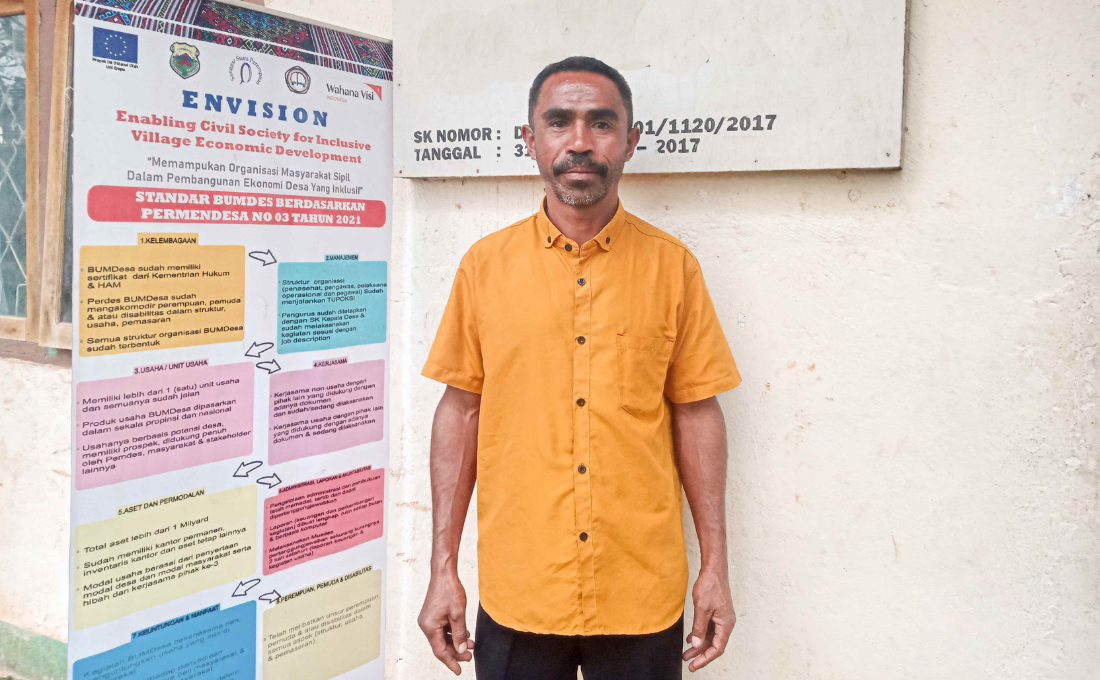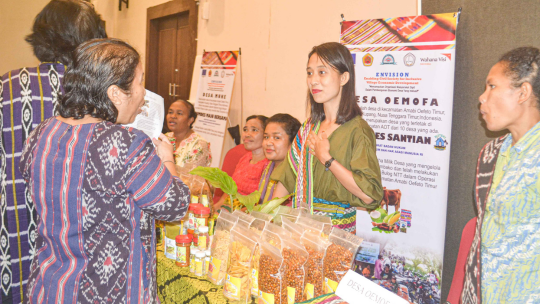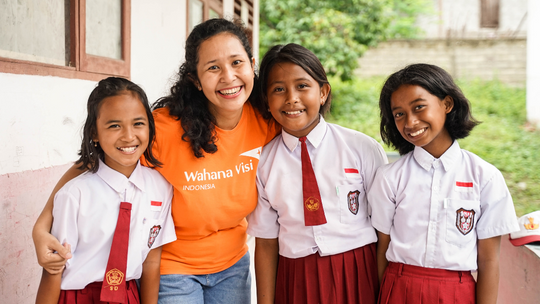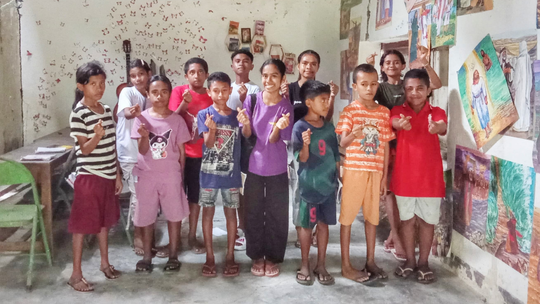Cultivating Women’s Participation in South-Central Timor

Not far from the city center of South Central Timor Regency, there is a village that practices a caste hierarchy of kings and servants. The village mostly consists of the Dawan Tribe that further implements a patriarchal kinship. In the community, men have the authority and power to make community decisions. Meanwhile, women have the responsibility of managing household chores. Women are only responsible for cooking, washing, making coffee for guests, cleaning the house, and taking care of small livestock. Women are not involved at all in village activities or decision-making processes.
However, this caste system and traditional thinking is slowly changing. The idea that only men who have the right to advance governance is being challenged. “I am concerned about the condition of women in this village. Many of their talents and dreams must be buried because of the customs of our culture,” said Mr. Abanat (42).
Mr. Abanat is a traditional figure of royal descent and the Chair of the Village Consultative Body (BPD). Even though he comes from a respected group, he actively encourages women’s participation in the village. He became an advocate after participating in a GESI workshop that was facilitated through ENVISION project, a collaboration between WVI and European Union (EU). This workshop included a series of capacity building activities for village officials to develop BUMDes.
This training, which specifically aimed to target husbands who are also government village officials, was aimed at increasing women’s participation and opportunities. “After participating in this training, I am increasingly aware that this practice is unfair and harms my daughter and my wife as well,” said Mr. Abanat.
Villages will develop rapidly, especially economically, when the whole community is involved and heard. Limiting the potential of certain community groups will reduce available resources. Often, it is the culture or hierarchy of people that limits local progress. However, the village where Mr. Abanat lives has managed to break out of this culture.
Mr. Abanat’s active participation together with capacity building training facilitated by WVI through the ENVISION program, has increased community awareness of the importance of women's participation in village development. This is shown by concrete evidence of village governments which requires 30% of women participants in every activity held in the village.
Since the village government requires a minimum quota for women’s participation in village activities, youth and women are not hesitant to participate in village meetings and BUMDes management. These days, the local village government ensures GESI is discussed in every village activity, both in official speeches and in non-formal religious activities.
Mr. Abanat hopes the village government will keep the commitment that has been made. He wants the people in the village to keep broadening their horizons and changing for the better.
Author: ENVISION project team in South-Central Timor, East Nusa Tenggara
Editor: Mariana Kurniawati (Communication Executive)



